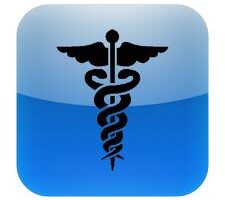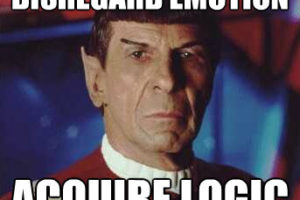Medical Law and Ethics Practice
- Posted by Brian Stocker
- Date November 8, 2016
- Comments 1 comment
Taking a medical test?
Get up to speed with these medical law and medical ethics questions!
Practice Questions
1. Which of the following refers to the behaviors the medical professionals with moral integrity are expected to exhibit?
a. Courtesy
b. Mores
c. Customs
d. Medical ethics
2. The three issues that determine an incident of battery are:
a. The patient has been given false information about a treatment.
b. The patient is judged incompetent to consent to treatment and has received improper care.
c. Care that the patient has refused is forced upon them without court authorization.
d. All of the above
3. The four major principles of medical ethics are:
a. Autonomy, beneficence, non-malfeasance and justice
b. Privacy, autonomy, beneficence and justice
c. Autonomy, beneficence, universality and justice
d. Autonomy, beneficence, non-malfeasance and morality
4. The definition of a double effect does not state that:
a. A double effect is a byproduct of non-malfeasance
b. The action being considered is in itself either morally
good or morally indifferent.
c. There was no direct intention to cause harm.
d. The beneficial result must be disproportionate to the
harm caused by the action.
5. Which of these statements about the AMT standards of practice is/are false?
a. Only duly licensed physicians/dentists are required
to report any knowledge of professional abuse to the
appropriate authorities.
b. As an AMT professional, you must place the welfare
of the patient above all other considerations.
c. The judgment of the attending physician/dentist
shall be protected and valued, no matter what the circumstances.
d. a) & c)
6. ______________ is an ethical principle that states that communication between a patient and a provider must remain private.
a. Autonomy
b. Honesty
c. Consent
d. Confidentiality
7. ______________ is the major principle of medical ethics that states that physicians and other medical professionals must act in the best interest of the patient.
a. Justice
b. Autonomy
c. Non-malfeasance
d. Beneficence
8. The principles of ____________ and ___________ must be balanced to be certain that any risks involved in medical treatment or procedures is outweighed by the benefit to the patient.
a. Autonomy and privacy
b. Dignity and justice
c. Beneficence and non-malfeasance
d. Ethics and beneficence
9. ___________ is the ethical principle most applicable to the highly publicized issue of universal healthcare.
a. Justice
b. Autonomy
c. Non-malfeasance
d. Beneficence
10. A __________ system is a process by which treatment is prioritized based on needed personnel and those who are most critically ill or injured.
a. Disaster
b. Quarantine
c. Pandemic
d. Triage
Practice Question Answer Key
1. D
The system of moral principles that practitioners apply to their values and judgments are known as medical ethics. When studied as a scholarly pursuit, this is the study of not
only practical applications in medical treatment, but the history of the practice, as well as the sociological, theological, and philosophical aspects.
2. D
All of the statements are true.
The patient was given fake information about the treatments
The patient has not only received improper care, but has been judged unable to consent to the treatment
The care was refused by the patient, but forced on them without being authorized by a court
Battery is specifically the unlawful use of physical contact.
This is different from the criminal offence of assault, which is the threat or fear of that contact. In The United States, simple battery is defined as using force against another person, with offensive or harmful contact being the end result. The term is used in a general way to describe any unlawful physical contact, although the law itself
is more specific. In particular, battery is defined as “any unlawful touching of the person of another by the aggressor himself, or by a substance put in motion by him.” In the
majority of battery cases, it is subject to statutes and can change in severity depending on each jurisdiction.
3. A
The four major principles of medical ethics are autonomy, beneficence, non-malfeasance and justice.
Autonomy: The patient can refuse their treatment, or choose a course of action
Beneficence: The doctor should always act in the patient’s best interest
Non-malfeasance: “First, do no harm” Justice: Scarce resources must be distributed according to who needs what kind of treatment and what would be fair
These are not answers to handling situations, but they are a framework for understanding the conflicts that can arise.
4. B
Double effect does not state that, the action being considered is in itself either morally good or morally indifferent. Double effect, known as the principle of double effect, the
doctrine of double effect, or the rule of double effect is often abbreviated as DDE or PDE. This is the ethical criteria that is used to evaluate the decisions a practitioner should make when the legitimate act could also result in a harmful effect that would usually be avoided.
The criteria states that an action that has known harmful effects can be justified if it fits a number of criteria:
• The nature of the action must be good, or at the very least neutral morally
• The procedure must have a good effect that is intentional and is the ends, not the means
• The circumstances must justify the action and the bad effects must be outweighed by the good results
5. D
The following statements about the AMT standards of practice are false:
• Only duly licensed physicians/dentists are required to report any knowledge of professional abuse to the appropriate authorities.
• The judgment of the attending physician/dentist shall be protected and valued, no matter what the circumstances.
6. D
Confidentiality is an ethical principle that states that communication between a patient and a provider must remain private.
7. D
Beneficence is the major principle of medical ethics that states that physicians and other medical professionals must act in the best interest of the patient. Actions that are meant to enhance others’ well-being are referred to with the phrase beneficence. When it comes to the medical world, this specifically refers to actions with the best interests of each patient in mind. The problem comes from the lack of a definition of the practices that help patients in the best way.
8. A
The principles of autonomy and privacy must be balanced to be certain that any risks involved in medical treatment or procedures is outweighed by the benefit to the patient.
9. A
Justice concerns the distribution of scarce health resources, and the decision of who gets what treatment (fairness and equality).
10. D
A triage system is a process by which treatment is prioritized based on needed personnel and those who are most critically ill or injured. Assessing the severity of a patient’s condition in order to determine their priority is known as triage. At a time when resources are scarce, this helps to ration the treatments in order to provide the best care. There are two categories of triage: advanced triage and simple triage. This can be
used to decide the order of emergency treatments, the order of emergency patient transportation, or the destination of the patient for treatment. This triage process is done when patients first arrive at an emergency facility, when they are phoning in emergency calls, or any other time that a patient has an emergency that must be assessed.
Date Published: Tuesday, November 8th, 2016
Date Modified: Monday, May 27th, 2024
Created by Brian Stocker and the team in Victoria, BC.
Helping students succeed since 2005
Got a Question? Email me anytime - Brian@test-preparation.ca
You may also like
Listening Comprehension Practice – Solving a Problem
Listening Comprehension Practice – Everyday Conversations Below is an everyday conversation divided into 3 sections. After each section are questions – play the questions, then choose the best answer. Tests that have Listening Comprehension questions: Canadian Firefighter, CAEL and CELPIP …

Free Pharmacology Practice Questions


1 Comment
thanks for posting!